London – Relevance, Reality, Readiness and Relationships
The time in London with the D.Min program proved to be a significant milestone in the journey of my life. This past visit has been one of the most delightful of many that I have made to this grand city which exudes an amazing array of the past and present, the ancient and the modern, the old and the new, traditional and untraditional, all existing and interacting side by side. London never ceases to amaze me from that perspective. 
As an Indian, it is always with mixed feelings that I enter and exit London. Why is that so? Three hundred years and more of British rule and influence has had a significant impact on the manner in which life is lived in India despite its cultural diversity and difference from the West. The government administrative hierarchy, the democratic political organization, traditional practices the infrastructure such as the enormous railways network, postal organization; the education system have been shaped by these centuries of colonial governance. 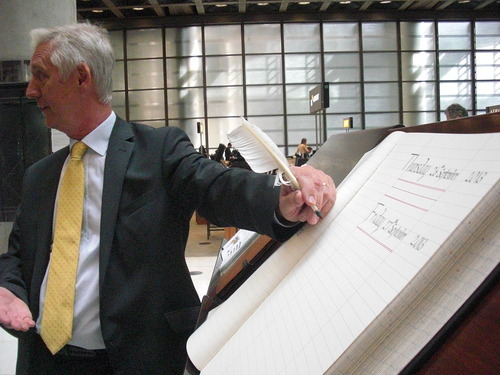
Every visit is a fresh reminder of some of these and an elucidation of certain practices that we as a people don’t understand but simply perform as a matter of tradition; unnecessary relics from the past for the younger generation and those from more modern cultures but an accepted and well worn way of life for some of us.
The re-orientation to London started with the experience that a few of us from the cohort had procuring our weekly travel card walking back and forth from machines that didn’t work to men behind counters who couldn’t explain to new comers the age old method that was in place. That was sweat and frustration for a few but for an Indian it was a given.
The London Advance:
Something can be said about every single piece of the Advance and every minute I spent in London. However, this presentation highlights just a few experiences that had the greatest impact and from which I gleaned the most. My thoughts have revolved around four concepts during the program in London and the time of ongoing learning and reflective practice since. An attempt is made to summarize these special learning experiences during the Advance, and simultaneously provide a synthesis and reflection of related readings of this term and the impact it is having on my current ministry.
1. Relevance
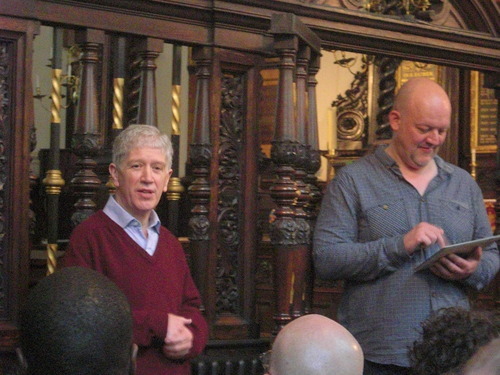
The program started with the visit to St. Margaret’s, Lothbury and the very informal but impressive humour filled presentation by the rector Jeremy Crossley. The information shared about his spiritual journey and his current ministry impacted me greatly. Located close to the business district in the heart of London, the church and his ministry were meeting a very relevant need.
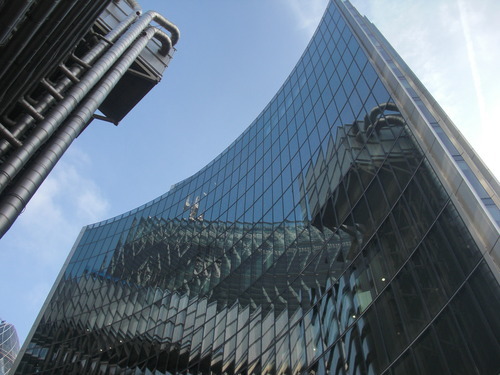
The appeal of his ministry to an elite group of people and the method used to respond to their questions and reflections pertaining to the meaning of life, its challenges in an ever-changing, unstable financial world; trying to provide answers to these questions in a contextual manner was captivating. Jeremy quoted Samuel Johnson in the course of his conversation and mentioned the phrase “the precious present”. It has stayed with me ever since.
Christian ministry constantly faces the danger of either getting wedged in the past or being too futuristic that it misses the precious present; the doors that God opens and the opportunities that God provides to serve Him and to serve people right now in the present time and present context are overlooked. These are opportunities of being instruments of transformation and influence. It is critical for leadership to keep in step with the move of God with deep spiritual sensitivity to the heart cry of people in each generation and in each context is critical. Quite often the question why the western world does not witness as much of a response to the Gospel as India does’? The Message presented in relevant methods and forms, meeting the needs of individuals in various contexts in a relevant manner draws people into Christ’s Kingdom (Frank 2013). It was very encouraging to learn from Jeremy that the numbers of church attendance in London had increased significantly.
2. Reality of Christ’s presence and power
The visit to Christ Church and Upton Chapel and learning of the outreach of the Oasis ministry opened my eyes to the reality of the presence of Christ, His ongoing redemptive work and the manifestation of His power through His Body – The Church. Christ is at work in every culture and every context. Wherever the local church is ready and available, it is used as a channel. This indeed is the call and the mission of the church – continuing the redemptive work of God in every context in a relevant manner. Christianity is not a ritualistic religion. It is a way of life. God’s people are called to live out the reality of the presence of Christ and manifesting His power through their lives.
Vineyard Church – Sutton. Sunday service at the Vineyard in Sutton was another great spiritual experience endorsing and exemplifying the above reality. The setting was a school building; quite untraditional and seemed right in the middle of everyday life. In that sense it was a very contextual setting and one that presented the idea of the church as a body of believers reaching out to the community rather than an institution inviting members to join.
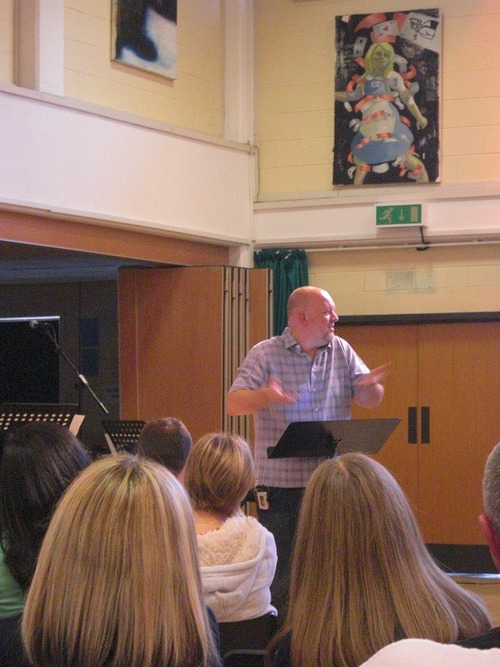
The message came forth from the heart of the preacher – a down to earth but powerful one based on the familiar passage from John chapter 11 proclaiming Jesus the all powerful God and yet one who empathizes and seeks to enter into every dimension of a person’s life. It spoke straight to my heart.
As the singing and worship progressed, I could not take my eyes off the murals and art decorating the walls of the hall where the church had gathered. It wasn’t articulated but the art there spoke to me of the reality of Christ’s presence and power in every context as well. The Christian faith is based on the incarnation of Christ ‘the word became flesh’. Therefore creative use of imagery can definitely enhance the experience of Christian worship and give it deeper meaning. It can become an effective channel to inculcate the values of the Kingdom. “Surely what is called for is a new alliance and interaction between the word and the image” (Dyrness 2001, 132). I kept thinking to myself, given the fact that Indian culture predominantly follows oral tradition with a major proportion of its population being low or non literates, visual art could play a significant role in worship and spirituality in the church (Morgan 2005). There is no doubt that we live in a fallen world and it holds every possibility in its fallen state to take what could be beneficial and turn it towards its own destruction. This could happen with visual art as well. However, that cannot be a reason to totally discard it as it has been done. Christian art certainly holds the potential to become a powerful tool for evangelism and discipleship.
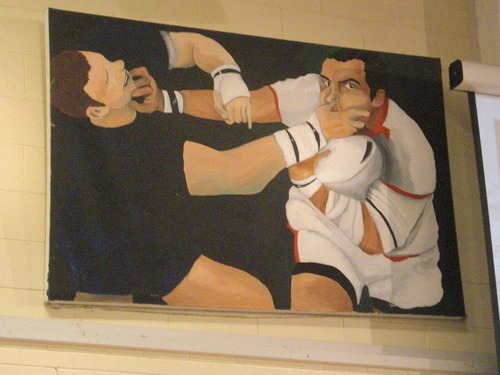
The paintings continued to speak to me – right in the middle of the world’s realities, needs, pain, hurts, conflicts, aspirations

and struggles, the Body of Christ has been placed to manifest His presence, to speak his message and to live out His resurrection power. The church is not an isolated entity.
Further, the church building is not meant to be an exclusive sanctuary and the gathering place of exclusive members of a club but

a center that brings life to the community in which it is placed and the body of believers equipped and empowered to be the salt and light.
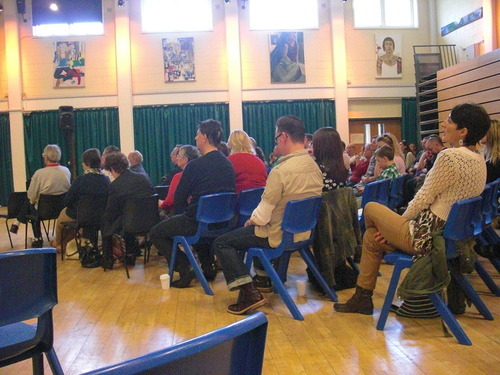
I don’t mean to imply that it has to be so for everyone, nevertheless Christian Worship turns out to be as meaningful for me whether it takes place in contexts like these, or in a cattle shed cleaned out for the purpose for lack of any other space in the village such as the one I visited a few days ago, or whether it is conducted in one of the world’s most renowned Cathedrals as St. Paul’s. It is the presence of the same Christ that is experienced, the manifestation of the transforming power of the same Holy Spirit at work, the same powerful Word penetrating the hearts of people and drawing them to himself. The ‘delightful simplicity of the Gospel’[1] of which I was reminded through one of the prayers of St.Vincent De Paul at the Evensong at St. Paul’s, is universal.
A few weeks after this stirring, I found myself walking through the narrow pathways of primitive tribal villages in eastern India. How do I transfer my London learning experience to the present reality? I had just returned from one of the world’s leading metropolis and the leading financial centers.
With the sounds of the city of London – the center of arts, fashion, education, entertainment, finance, healthcare, media, professional services, commerce; well planned and laid-out, with all its sophistication and modernity ringing in my ears and its sights still fresh in front of my eyes, I found myself transported from the world’s cultural capital to a cluster of huts populated by primitive people which is my main area of ministry that God has called me to. At the onset there seems to be nothing in common. And then it dawns on me as a Christian leader, that two of the most fundamental pillars of life that are the common denominators.
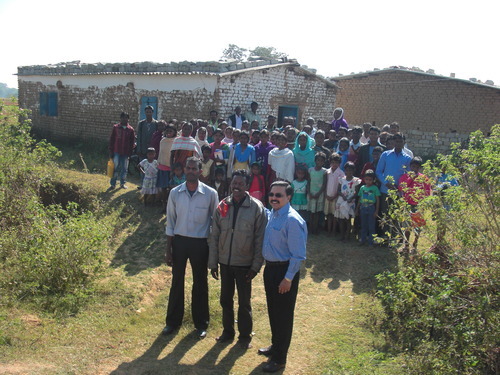
First, it is the spiritual need of people, their hunger and heart cry for God and then authenticity of the Gospel to cut through everything that is superficial and relate to that spiritual need no matter what the context to meet those needs. In both of these places people were looking for the answers to quench the thirst of their souls.
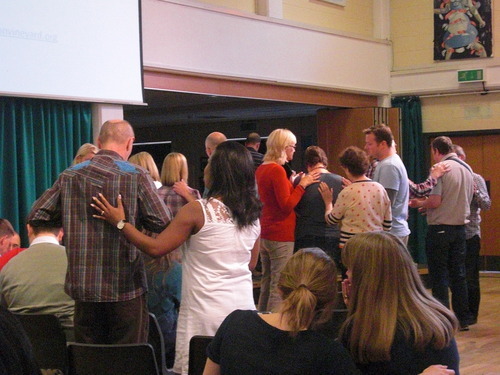
I discover the amazing reality the Gospel translates into every context with the same integrity and the same impact. It has the power to transform the most sophisticated people and communities in a city like London or a nameless hamlet with a cluster of mud huts inhabited by tribal people living in the most primitive of conditions. The state of fallenness and the spiritual needs are the same.
3. Readiness – the requirement for leadership
Shawn Holzclaw’s reminder that:
a. I am God’s leader and need to be surrendered to His purposes.
“Good leadership is a channel of water controlled by God; he directs it to whatever ends he chooses.”
b. I am a steward of His resources. As a steward a leader’s responsibility is fiduciary in the use of gifts entrusted
c. I should recognize my unique DNA. “No one can consistently behave in a manner that is inconsistent with how they perceive themselves”[2]
I had the privilege of having Shawn’s attention for more than half an hour all to myself reflecting on questions from his presentation and asking guidance for applications in my life and ministry. His readiness and willingness to share and to pour out his knowledge gained through experience without hesitation during this time and after dinner with the whole group was remarkable. That is when he impressed on me that a leader needs to be ready for use in the Master’s hands at all times – in and out of season.
Mary Kate through her talk on ‘The embodiment of leadership’, drilled deep down the point that leadership is not just about what one does and what one accomplishes. Leadership is about the person. It is about who one is how it is embodied. Body language related to leadership is a concept that is seldom given thought. My days of success as a leader are mostly measured on the basis of planning, strategising, executing, implementing and achieving and end results. But little thought is given on how I am perceived, received and accepted as a leader. Jesus asked His disciples, “Who do people say that I am?” I came out of that session with the word – ‘Christlike’; that is what I want to be in every respect.
Steve Chalks covered an extensive ground on vision, leadership and his personal experiences. What was wedged into my heart was his gracious ‘stepping aside’ and passing on the baton of leadership with confidence of leaving behind a lasting legacy to the next generation of leaders capably equipped to carry it to the next level. Quoting Carl Jung he described himself as being in ‘the afternoon of life’ and that his commitment now was to mentor, coach and equip the next generation and to make a wider contribution to the world. Being in the afternoon of life myself, I realize the need to step aside, graciously, courageously, confidently and comfortably ensuring that I too as a leader should leave behind a lasting legacy. I have now made plans to step aside and coach the next leader of my organization. Even though the thought has passed through my mind for a while, I had not set a time frame or made deliberate effort to implement it. Plans are underway, along with a time frame to accomplish that. Intentional efforts are undertaken to embrace a more ‘open leadership’ (Li 2010) as well.
Shawn and Steve undoubtedly are level 5 leaders (Collins, Good To Great 2001, 20). The Bible speaks about being prepared and ready always to minister and to serve and to be used of God for His purposes. We read in Ephesians 6 the description of “Putting on the whole armor of God” and being ready for battle. Paul admonishes Timothy, his son in the Gospel, to be ready to ‘preach the gospel in and out of season’. We see illustrations of preparation and readiness in many locations in the Old and New Testament. These passage weren’t actually discussed or quoted but they continue to ring in my heart.
It cannot be denied that there is a dearth of leadership at all levels in our societies. The need is not for just one or two but in really large numbers. The gap widens further as one takes a closer look at Christian organizations in my context. There certainly is a need for Christian organizations to rise to the level of ‘greatness’ as defined and described by Collins and that will be effected only through level 5 leadership.
Over the last two years, I have been investing in a small group of second line leaders and committed to raising 500 next generation next generation leaders throughout India. Part of my commitment to them is to provide the training they require and the tools and material to equip them for leadership. In the process the question how I will emerge as a successful model leader with a ‘well differentiated” self (FRIEDMAN 2007, 231).
4. Relationships
Apart from the talks, presentations and field exposure what I enjoyed most was the informal and casual time we got to spend together with others in the cohort.
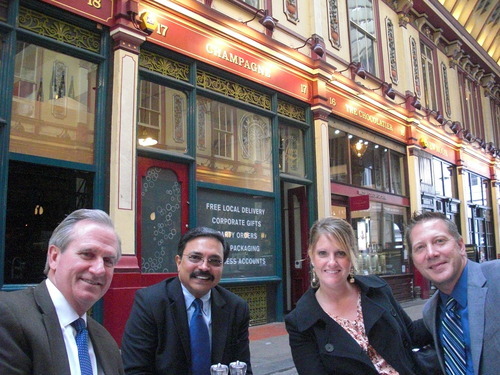
It was enriching to get to know people more personally, to forge deeper friendships, learn from each other and grow in personal relationships. The dinners each evening were great times of relationship building especially the closing dinner at the ‘Swan’, the fellowship and the final chance to connect with one another remains memorable.
Undergirding this great learning experience is the exemplary servant leadership provided by our lead Mentor Jason Clark through the sharing of his wide and deep knowledge, the desire to impart it and mentor others, his practical ministry experience and just his availability to relate as friend and counsellor.
Video available at: https://www.youtube.com/watch?v=i548VJ_z1C8&feature=youtu.be
Collins, James C. Good To Great. New York: Harper Collins, 2001.
—. Good To Great And The Social Sectors. New York: Harper and Collins, 2005.
Franke, John R. Evangelicalism and the Exclusivity of Christianity. June 1, 2013. http://www.respectfulconversation.net (accessed December 3, 2013).
FRIEDMAN, Edwin H. A Failure Of Nerve: Leadership in the Age of the Quick Fix. New York, New York: Church Publishing Inc.„ 2007.
Friedman, Edwin H. A Failure of Nerve: Leadership in the Age of the Quick Fix. New York: Seabury Books, 2007.
Li, Charlene. Open Leadership. San Fransisco, California: Bossey Bass, 2010.
Morgan, David. Sacred Gaze. Berkeley, California: University of California Press, 2005.
Leave a Reply
You must be logged in to post a comment.